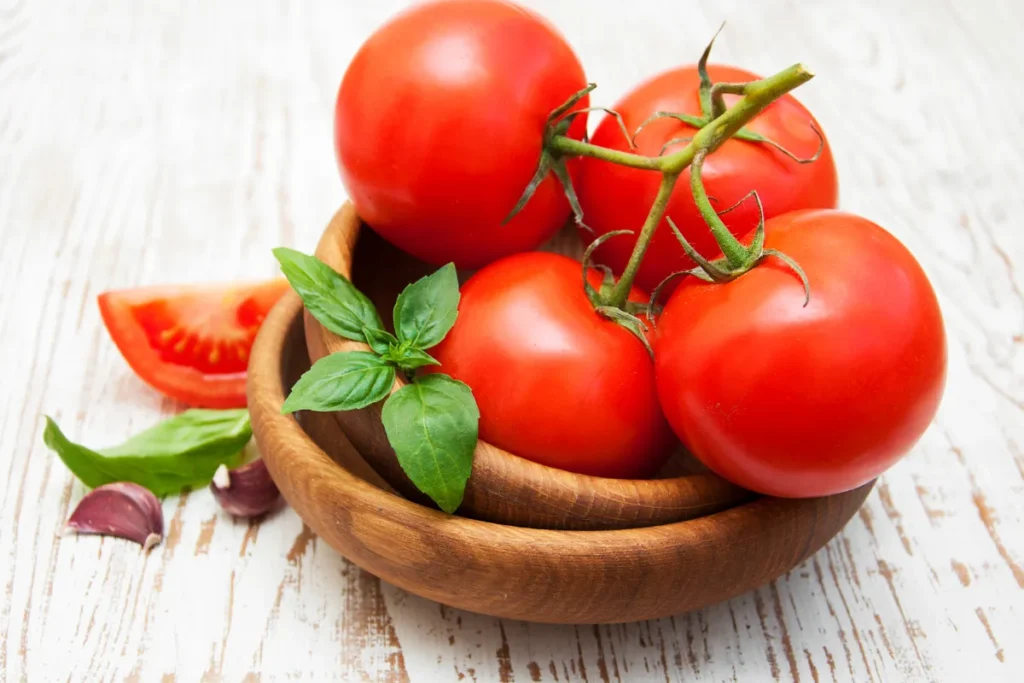Proper food storage is essential for maintaining freshness and flavor while preserving the nutritional value of our favorite foods.
While refrigeration is a common method of food preservation, not all foods benefit from being stored in the refrigerator.
In fact, refrigerating certain foods can lead to loss of flavor, texture changes, and even spoilage.
In this comprehensive guide, we’ll explore the top 8 foods you should never refrigerate and provide insights into the best storage practices to keep your food fresh and delicious.
Tomatoes:

Tomatoes are a staple in many cuisines, prized for their vibrant color and sweet-tart flavor.
However, refrigerating tomatoes can cause them to lose their characteristic taste and texture.
The cold temperature of the refrigerator can break down the cell walls in tomatoes, resulting in a mealy texture and bland flavor.
Instead, store tomatoes at room temperature, preferably on the countertop, away from direct sunlight.
This allows them to ripen fully and develop their full flavor potential.
Potatoes:
Potatoes are a versatile and nutritious staple in many diets, beloved for their hearty texture and earthy flavor.
However, refrigerating potatoes can cause their starches to convert to sugars, resulting in an unpleasantly sweet taste and a gritty texture when cooked.
To prolong the freshness of potatoes, store them in a cool, dark place, such as a pantry or cellar, in a well-ventilated container.
Keep them away from onions, as the gases released by onions can cause potatoes to spoil more quickly.
Onions:
Onions are a flavor powerhouse in many dishes, adding depth and complexity to savory recipes.
However, refrigerating onions can cause them to become soft and moldy.
The humidity of the refrigerator can also cause onions to sprout prematurely.
Instead, store onions in a cool, dry place with good air circulation, such as a pantry or countertop.
Avoid storing onions near potatoes, as the gases released by onions can cause potatoes to spoil more quickly.
Garlic:
Garlic is prized for its pungent flavor and aromatic qualities, adding depth and richness to a wide range of dishes.
However, refrigerating garlic can cause it to become rubbery and lose its flavor.
The cold temperature of the refrigerator can also cause garlic to sprout prematurely.
To maximize the shelf life of garlic, store it in a cool, dry place with good air circulation, such as a pantry or countertop, in a well-ventilated container.
Bread:
Bread is a staple food enjoyed by people around the world, valued for its versatility and comforting taste.
However, refrigerating bread can cause it to become stale more quickly.
The cold temperature of the refrigerator can cause the starches in bread to recrystallize, resulting in a dry, crumbly texture.
Instead, store bread at room temperature in a cool, dry place, such as a bread box or pantry, in a sealed plastic bag or bread box to prevent it from drying out.
Avocados:
Avocados are prized for their creamy texture and rich, buttery flavor, making them a popular ingredient in salads, sandwiches, and dips.
However, refrigerating avocados can slow down the ripening process and cause them to become hard and flavorless.
To ripen avocados quickly, store them at room temperature until they yield to gentle pressure when squeezed.
Once ripe, store avocados in the refrigerator to slow down the ripening process and extend their shelf life.
Coffee:
Coffee is a beloved beverage enjoyed by millions of people worldwide, valued for its rich, complex flavor and invigorating effects.
However, refrigerating coffee can cause it to absorb moisture and odors from the refrigerator, resulting in a stale, off-flavor.
To keep coffee fresh and flavorful, store it in an airtight container in a cool, dark place, such as a pantry or cupboard, away from heat and moisture.
Honey:
Honey is a natural sweetener with a long history of culinary and medicinal use, prized for its rich flavor and antioxidant properties.
However, refrigerating honey can cause it to crystallize and become thick and grainy.
To keep honey liquid and pourable, store it at room temperature in a tightly sealed container, away from direct sunlight.
If honey crystallizes, gently heat it in a warm water bath to restore its smooth consistency.
Conclusion:
Proper food storage is essential for maintaining the freshness, flavor, and nutritional value of our favorite foods.
By understanding which foods should not be refrigerated and following best storage practices, we can ensure that our food stays fresh and delicious for longer.
From tomatoes and potatoes to bread and honey, knowing how to store these foods properly can help us make the most of our culinary adventures.